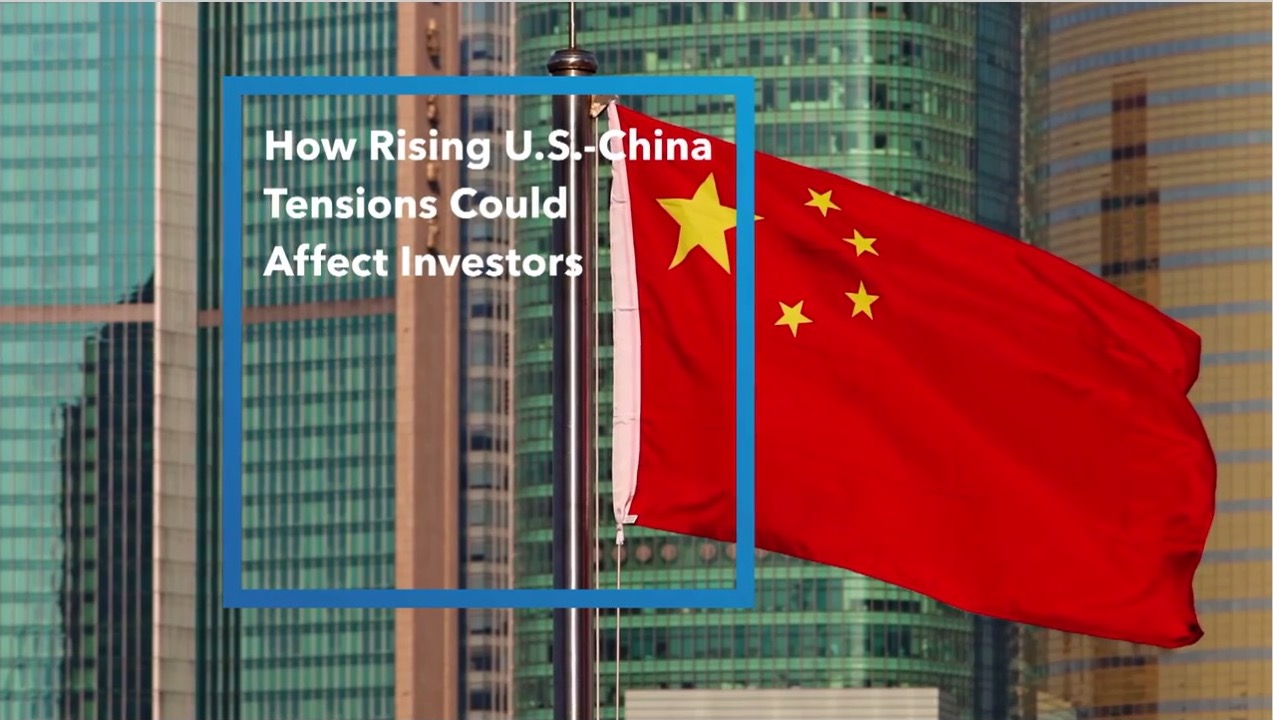by Michael Thawley, Matt Miller, Capital Group
China's relations with the West are at a crossroads. Capital Group political economist Michael Thawley discusses what to expect from U.S.-China negotiations and how it could affect global investors.
Transcript
Matt Miller: How do you think about Trump's approach to China, which has differed from his predecessors'? What do you expect in the relationship in the next few years, and how might that impact markets?
Michael Thawley: Well, this is a key question — maybe more important than any of the others we have discussed. There's a political dimension to this and an economic dimension. The political dimension is that I think we Western countries were very favourable to China joining the global economic system. And we saw this as something which was beneficial to our economies, but also beneficial in the long term to global stability. And if China would evolve, it would become more like us, in effect. And I think what we're discovering is that that probably was mistaken — that in fact, right now we have a leadership in China which is increasing party control, the role of the state in the economy, and is really almost cracking down in a very old-fashioned way on diversity of opinion and so on.
We obviously have all benefited enormously from China's economic growth, and it's been a wonderful-- it's been a phenomenon. I mean, what China has achieved is remarkable, and for its own people a real blessing. And we've gained by exporting to China and so on. But people feel that there's not a reciprocal openness, that we've been more open to — our economies are more open to — China, to its investment, than China has been to us. And Mr. Trump is clearly looking to reset the economic relationship.
To do that, I think, will probably require some disruption to the relationship. Mr. Obama already initiated quite a number of anti-dumping cases against Chinese steel and other products, and I think we'll see more of that. The Chinese, of course, don't want serious disruption to the economic relationship. No one wants a trade war. And we'll have to see to what extent China understands the need for some resetting of this relationship and is prepared to accommodate some of the U.S.'s and other countries' concerns. There's clearly quite a bit of contact going on between senior U.S. business leaders and the Chinese leadership.
I think we can say both sides are looking for a deal, but they will have different perspectives on that deal. It's going to be difficult, I think, to see an outcome before the Chinese party congress, which is in, I think, November this year. Clearly, Xi Jinping would not want a major fight before that, because he would not want to be looking as if he couldn't control, manage, the relationship with the United States. Equally, he can't cave in to any particular U.S. demand in that period. So I think we'll see some uncertainty for some time. But I think we'd be foolish to underestimate the determination of the Trump administration to see some serious changes in that economic relationship.
Matt Miller: Are you surprised at all that Xi Jinping has been as assertive in the South China Sea, asserting the security interest?
Michael Thawley: It's a real worry. The Chinese assertiveness in its part of the world is unsettling the neighbours, and it's unsettling U.S. allies. That's putting it mildly. It's clear that what China is about is trying to establish dominance in the maritime area and air space around China to make it more difficult for the United States and its allies to operate close to China. And the focus of this, of course, is — in the longer run — putting pressure on Taiwan to rejoin, so to speak, mainland China. And these things are important from an investment point of view — not just in a macroeconomic sense, but also quite specifically for companies.
There's a very good example right now of how China will assert itself — try to achieve its aims, its strategic aims, security aims — through commercial pressure. So if you look at a company like AmorePacific, which is a cosmetics maker in South Korea, and another South Korean company, Lotte, the Chinese government is putting a lot of pressure on these companies in order to remind the South Korean government that it needs to take China's security interests seriously. And this is about the South Korean and U.S. decision to install a missile defense system in South Korea, which is clearly being prompted by the threat that North Korea poses, but which China fears might compromise its own defensive missile system. So the Chinese are not shy about making it quite clear what sort of behaviour they expect from [their] neighbours, including using economic and commercial pressures to achieve that.
So I think we have to keep in mind that underneath all of the day-to-day interactions or arguments over economic and commercial issues, where there's an underlying strategic competition going on here, this is a tussle to have the dominant influence in the Western Pacific between China and the United States. And the neighbours clearly do not want China as it is today to come out on top in that situation, because that will compromise those countries' sovereignty and independence of decision making. So this is going to go on for years, and it's a fact of life. And even if we have a deal on some of the major economic differences between the United States and China, this will continue.
Matt Miller: And yet, even in the next year or two, if I hear you right, investors should expect rising tensions between the U.S. and China, and potentially some back and forth that affects companies.
Michael Thawley: Absolutely. Absolutely.













